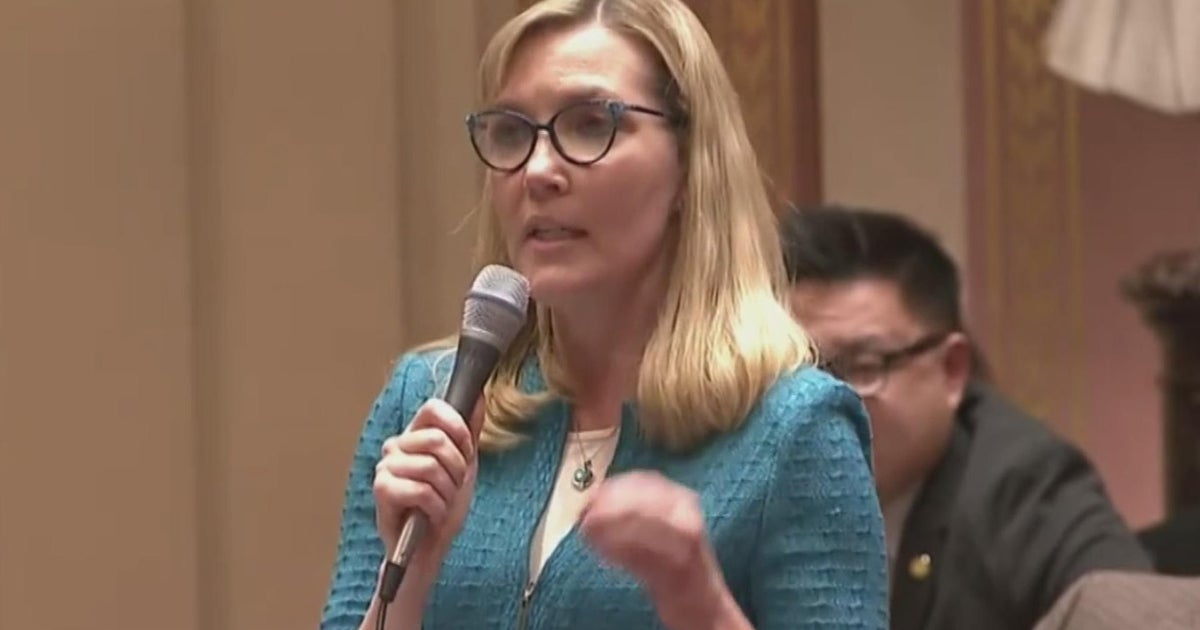Minnesota Jury Hears Opening Statements In Right-To-Die Case
HASTINGS, Minn. (AP) — Prosecutors said Monday they'll prove that a national right-to-die group assisted in the 2007 suicide of a 57-year-old Minnesota woman who suffered from years of chronic pain and showed signs of depression.
Final Exit Network Inc. is accused of helping Doreen Dunn to die and interfering with a death scene in violation of state law. If convicted, the group faces a maximum fine of $33,000 fine, defense attorney Robert Rivas said.
Dakota County prosecutor Elizabeth Swank told jurors in her opening statement that evidence will show that two members of Final Exit Network went to Dunn's home in Apple Valley, helped her take her life, then removed the equipment she used to inhale helium to asphyxiate herself so that it appeared she had died of natural causes.
Dunn's husband of 29 years arrived home on May 30, 2007, to find her dead on the couch. Swank said Dunn had a blanket pulled up to her neck with her hands folded on her chest.
Swank said Dunn's family was long puzzled by her death, which occurred the day before her daughter was scheduled to come home from Africa after being away more than a year. Her son's fiancee was scheduled to have a C-section that week. However, her husband of 29 years was also planning to move out of the house, the prosecutor said.
Rivas said Final Exit Network does not dispute that Dunn killed herself or that she was a member. He also acknowledged that two "exit guides" from the group, Jerry Dincin and Dr. Larry Egbert, sat with Dunn as she died. But he told jurors that prosecutors won't be able to prove the men assisted in her death.
"You will see again and again and again, the state does not understand what they are talking about," Rivas said.
Rivas said Final Exit Network has thousands of members, and they support the right of people to choose to die when they reasonably believe their time has come. He said the Florida-based group also believes that a person should never have to die alone. And he said the group provided her services in accordance with Minnesota law.
"They would offer education, information, emotional support but they would carefully stop short of assisting a suicide," he said.
Final Exit Network is charged with one felony count of assisting another in committing suicide and one gross misdemeanor count of interfering with a death scene. The state must prove Dunn took her own life with Final Exit's help, either through the group's speech or actions. Authorities didn't determine Dunn killed herself until a separate Georgia investigation into the Final Exit Network linked the group to her death years later.
The Minnesota Supreme Court narrowed the state's assisted suicide law last year, saying speech isn't considered assisting when someone is just sharing a viewpoint or providing support, but can be assisting if it's aimed at giving a specific person instructions on how to end his or her own life.
(© Copyright 2015 The Associated Press. All Rights Reserved. This material may not be published, broadcast, rewritten or redistributed.)



